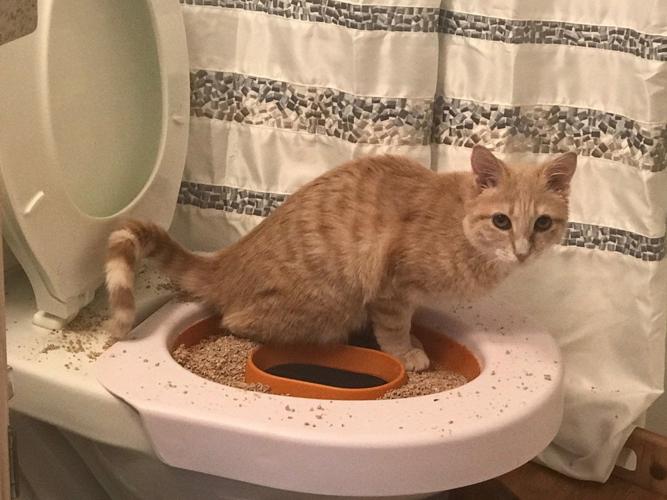The Dangers of Flushing Cat Poop Down Your Toilet - Advice for Safer Handling
The Dangers of Flushing Cat Poop Down Your Toilet - Advice for Safer Handling
Blog Article
Presented here in the next paragraph you might get a good deal of really good answers concerning How to Dispose of Cat Poop and Litter Without Plastic Bags.

Intro
As cat proprietors, it's necessary to bear in mind exactly how we get rid of our feline close friends' waste. While it may seem practical to purge feline poop down the toilet, this technique can have detrimental repercussions for both the environment and human wellness.
Alternatives to Flushing
Thankfully, there are more secure and much more responsible methods to dispose of feline poop. Consider the complying with choices:
1. Scoop and Dispose in Trash
The most typical approach of throwing away pet cat poop is to scoop it into a naturally degradable bag and toss it in the garbage. Be sure to utilize a specialized clutter inside story and throw away the waste immediately.
2. Usage Biodegradable Litter
Select naturally degradable feline clutter made from products such as corn or wheat. These trashes are environmentally friendly and can be safely disposed of in the garbage.
3. Hide in the Yard
If you have a backyard, think about burying cat waste in a marked area away from vegetable yards and water resources. Make sure to dig deep enough to stop contamination of groundwater.
4. Install a Pet Waste Disposal System
Purchase a pet dog waste disposal system especially designed for cat waste. These systems utilize enzymes to break down the waste, decreasing odor and environmental influence.
Health and wellness Risks
In addition to environmental concerns, flushing pet cat waste can also present wellness threats to humans. Pet cat feces might contain Toxoplasma gondii, a parasite that can create toxoplasmosis-- a potentially severe ailment, particularly for expectant ladies and people with weakened body immune systems.
Ecological Impact
Flushing pet cat poop introduces dangerous pathogens and parasites into the water supply, positioning a considerable threat to marine communities. These pollutants can adversely influence aquatic life and concession water top quality.
Conclusion
Responsible family pet ownership expands past offering food and sanctuary-- it also includes correct waste administration. By refraining from purging pet cat poop down the commode and going with different disposal approaches, we can decrease our ecological footprint and protect human health.
Why You Should Never Flush Cat Poop Down the Toilet
A rose by any other name might smell as sweet, but not all poop is created equal. Toilets, and our sewage systems, are designed for human excrement, not animal waste. It might seem like it couldn’t hurt to toss cat feces into the loo, but it’s not a good idea to flush cat poop in the toilet.
First and foremost, assuming your cat uses a litter box, any waste is going to have litter on it. And even the smallest amount of litter can wreak havoc on plumbing.
Over time, small amounts build up, filling up your septic system. Most litter sold today is clumping; it is made from a type of clay that hardens when it gets wet. Ever tried to scrape old clumps from the bottom of a litter box? You know just how cement-hard it can get!
Now imagine just a small clump of that stuck in your pipes. A simple de-clogger like Drano isn’t going to cut it. And that means it’s going to cost you big time to fix it.
Parasitic Contamination
Believe it or not, your healthy kitty may be harboring a nasty parasite. Only cats excrete Toxoplasma in their feces. Yet it rarely causes serious health issues in the cats that are infected. Most people will be fine too if infected. Only pregnant women and people with compromised immune systems are at risk. (If you’ve ever heard how women who are expecting are excused from litter cleaning duty, Toxoplasma is why.)
But other animals may have a problem if infected with the parasite. And human water treatment systems aren’t designed to handle it. As a result, the systems don’t remove the parasite before discharging wastewater into local waterways. Fish, shellfish, and other marine life — otters in particular — are susceptible to toxoplasma. If exposed, most will end up with brain damage and many will die.
Depending on the species of fish, they may end up on someone’s fish hook and, ultimately on someone’s dinner plate. If that someone has a chronic illness, they’re at risk.
Skip the Toilet Training
We know there are folks out there who like to toilet train their cats. And we give them props, it takes a lot of work. But thanks to the toxoplasma, it’s not a good idea.

We are very fascinated with Can You Flush Cat Poo or Litter Down the Toilet? and I am praying you enjoyed reading our post. Enjoyed our blog posting? Please share it. Help others discover it. Thank you for your time. Don't forget to come by our site back soon.
Maintenance Sign-Up Report this page